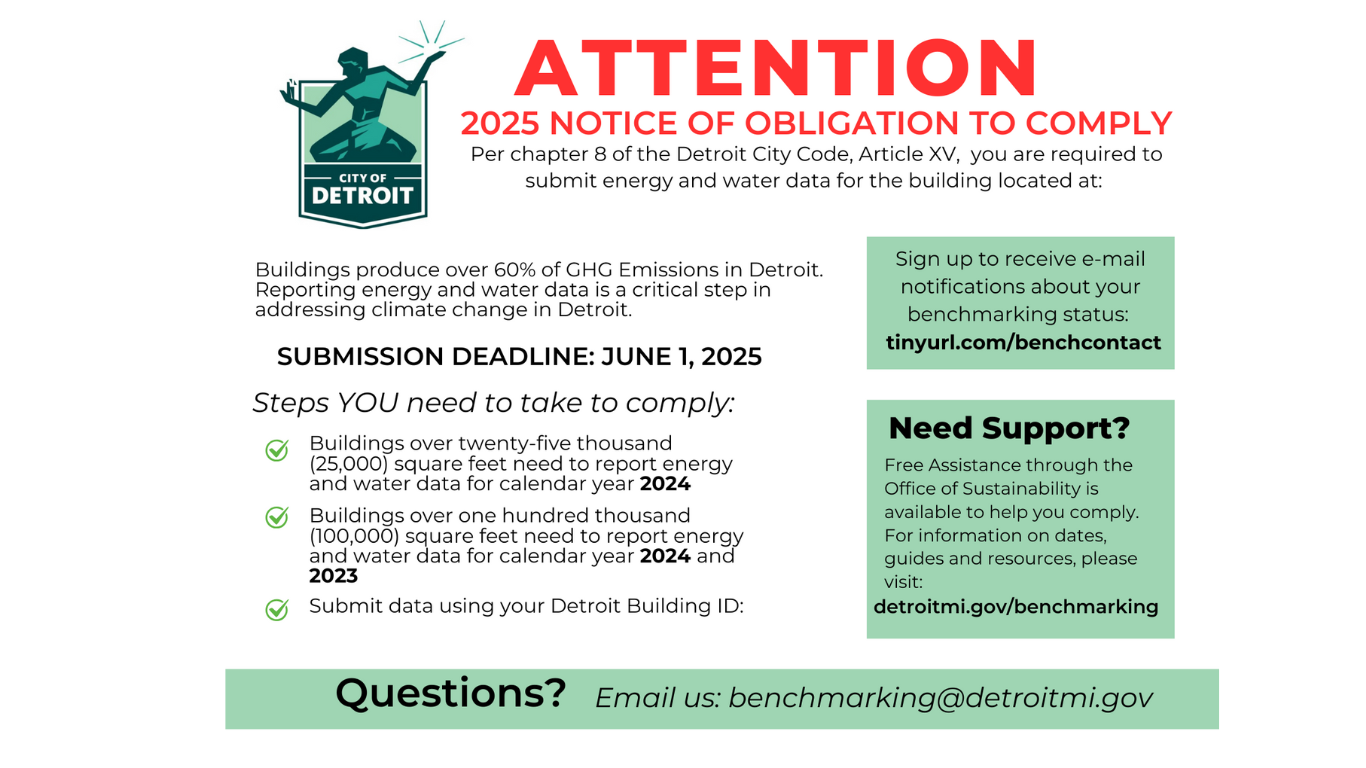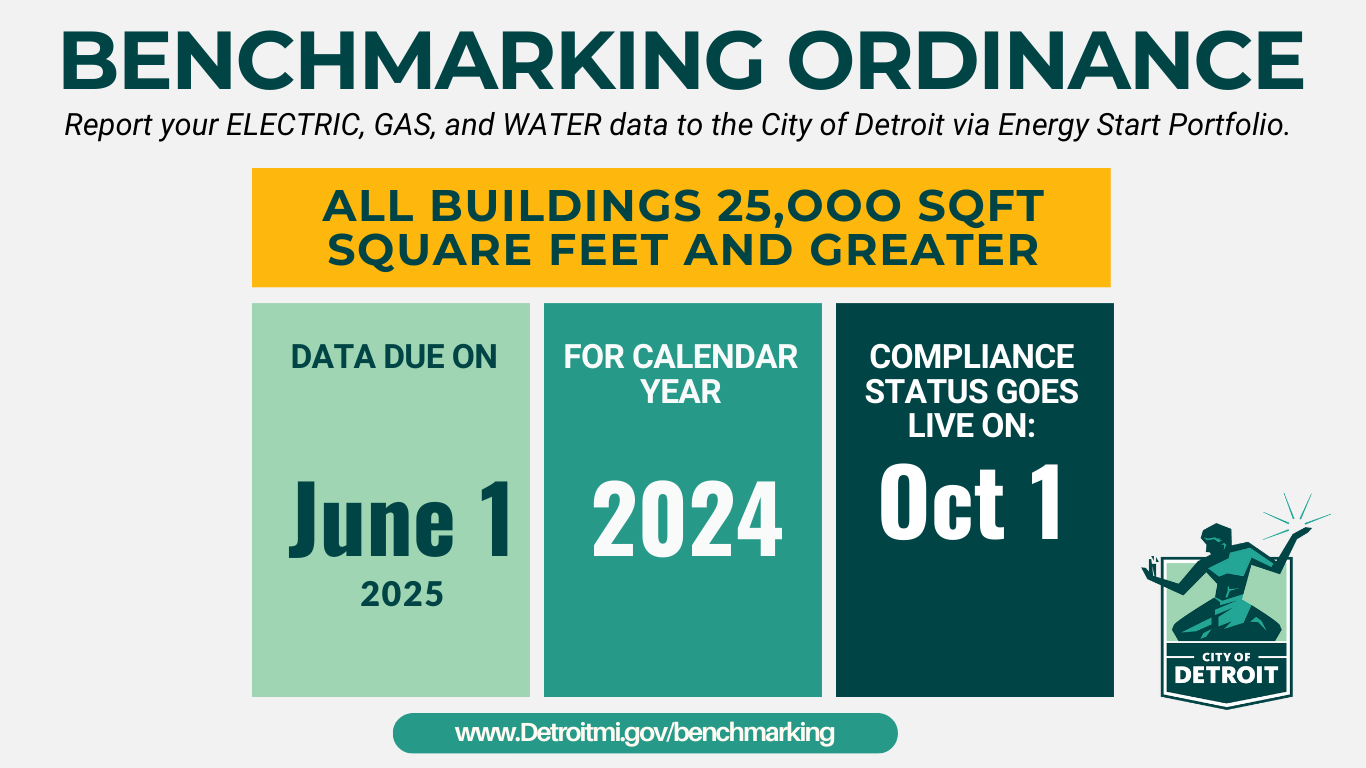For current info please visit detroitmi.gov
Energy and Water Benchmarking Ordinance
All building's 2024 Water and Energy Data is due on June 1, 2025. Get Started!
Learn how to report your utility data to the City of Detroit!
Buildings in Detroit have the highest opportunity for energy reduction. Benchmarking is the first step to identifying that potential.
If you have received this postcard, you are required to comply with this ordinance.
Steps to Reporting
All reporting will be done through Energy Star Portfolio Manager, the EPA’s tool for benchmarking commercial buildings. Get started with Energy Star Portfolio Manager HERE or View our “How to Benchmark” page.
Compliance to this ordinance can be done in four steps:
1. CREATE a building profile in Energy Star Portfolio Manager
2. CONNECT and share your building profile to the City of Detroit in Energy Star Portfolio Manager
3. ACCESS your building’s 12-month utility usage
4. INPUT your usage into Energy Star Portfolio Manager
Benchmarking Tutorial Series:
Watch this three part tutorial series to learn all the steps for compliance, and find resources for building owners to get extra help.
Part 1: Energy Star Portfolio Manager
Click here to watch Episode 1.
Part 2: Accessing Utility data and Automated Data Entry
Click here to watch Episode 2.
Part 3: Manual Data Entry into Energy Star
Click here to watch Episode 3.
Compliance Information
Buildings 25,000 SF or larger need to report 2024 data by June 1, 2025.
- Is your building required to report in 2025?
Complete the 2025 Contact Information Form to receive updates on benchmarking your building. - Ready to comply?
Download the compliance checklist.
How this ordinance was passed:
In November of 2023, City Council unanimously passed the Benchmarking Ordinance, requiring buildings with over 25,000 square feet of space to annually report their energy and water usage to the City.
Benchmarking buildings is a critical step in sustainability. According to the 2023 Detroit Climate Strategy, they account for more than 62% of Greenhouse Gas emissions in the city of Detroit. That’s around 2/3 of emissions!
This ordinance aligns with the 2019 Detroit Sustainability Action Agenda, the 2023 Detroit Climate Strategy, the 2022 MI Healthy Climate Plan, and the 2016 UN Paris Agreement.
Tracking alone is a proven way to save energy. According to the American Cities Climate Challenge, buildings that benchmark their energy reduce their energy use by 7%.
The goal of this policy is to improve energy efficiency across building types and reduce greenhouse gas (GHG) emissions. Additional benefits include:
- Increasing energy efficiency by identifying poor building performance
- Decreasing waste by tracking electric, gas, steam, and water usage
- Lowering utility bills by identifying reduction potential
Need Help Benchmarking?
Frequently Asked Questions
Frequently asked questions about benchmarking process and the ordinance
Free Technical Assistance is Available with the 2030 District
For non-profits, houses of worship, childcare centers and affordable multifamily properties.
Need Additional help?
Virtual Office hours: Book here
City Council President
Off
City Council Pro Tem
Off



